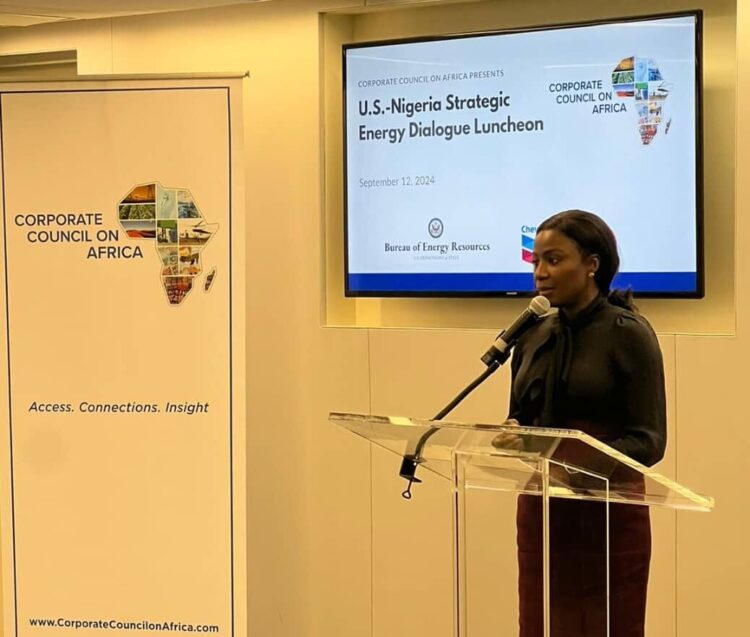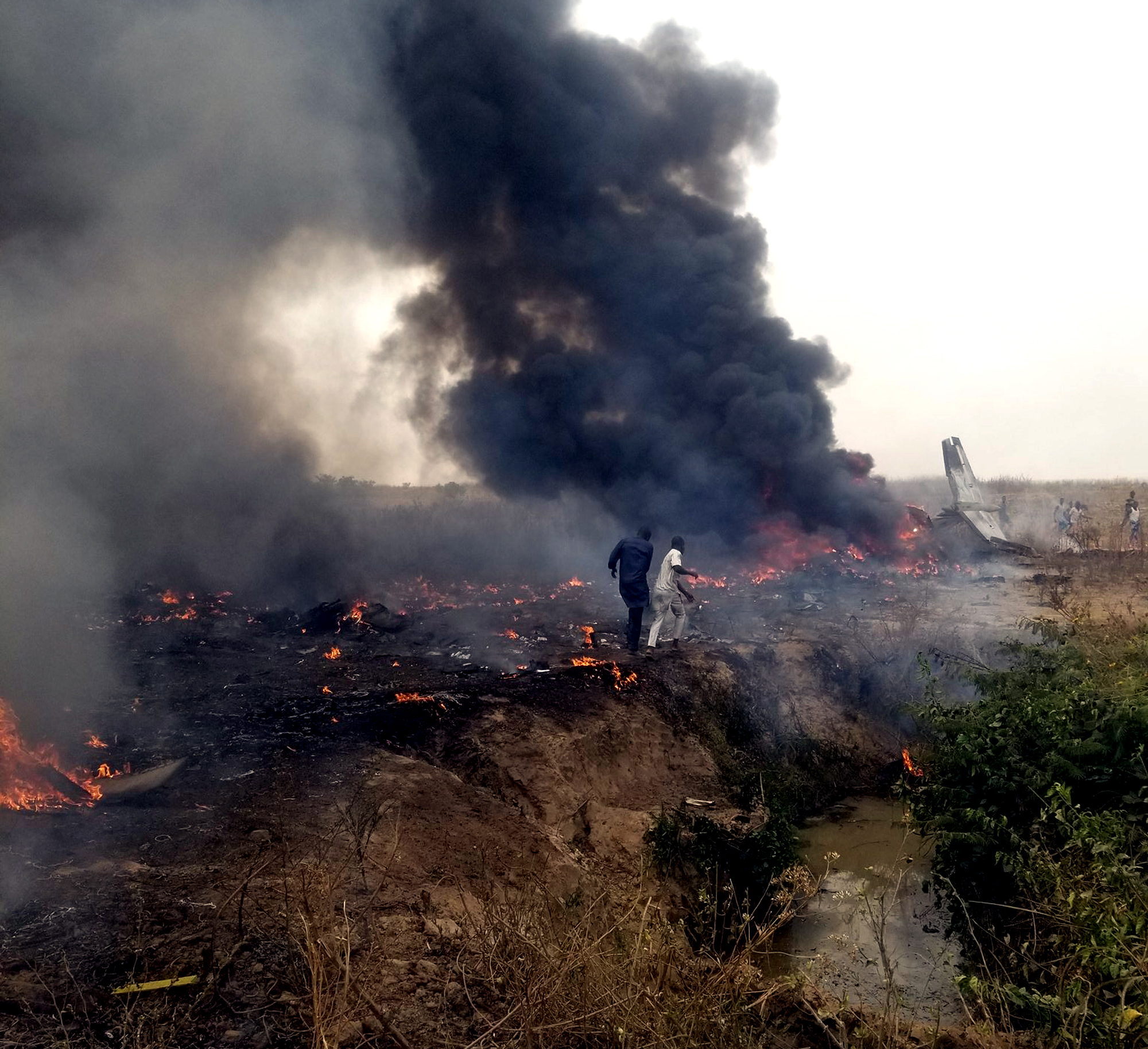NEWS
NNPC Ltd/TotalEnergies’ $550m Ubeta Upstream Gas Project Begins Operation – Aide

The 550 million dollars upstream gas project between the Nigerian National Petroleum Company Limited (NNPC Ltd.) and TotalEnergies on the development of the Ubeta field has commenced operations, the Presidency announced on Tuesday.The Special Adviser to the President on Energy, Olu Verheijen disclosed this during an inaugural US-Nigeria Strategic Energy Dialogue, hosted by the U.
S. State Department, in Washington, DC.Recall that the signing ceremony of the 550 million dollars Final Investment Decision (FID) on the Ubeta Field Development Project took place in Abuja in June 2024.The Ubeta field, which was discovered in 1964, is located northwest of Port Harcourt, Rivers State.Verheijen, in a statement by Olufemi Soneye, Chief Corporate Communications Officer, NNPC Ltd., said the upstream gas project would deliver 350 million standard cubic feet of gas per day when fully operational.Verheijen added that major energy reforms introduced by President Bola Tinubu since June 2023 focused on improving energy security,attracting investments and deepening collaboration with key partners,including the U.S. government.She said the key reforms had improved the viability of the gas-to-power value chain of the country.She listed the reforms to include the initiatives to improve cash flows in electricity distribution, through smart metering and the payment of outstanding debts owed investors as well as to reduce carbon emissions from gas production.She said the President issued five new executive orders aimed at providing fiscal incentives for investment and reducing the cost and time of finalising and implementing contracts to develop and expand gas infrastructure.The presidential aide said the directives would unlock up to 2.5 billion dollars in new oil and gas investments in the country.Responding, the U.S. Assistant Secretary of the State Department’s Bureau of Energy Resources, Geoffrey Pyatt, said the dialogue was apt and strategic.“The inaugural U.S.-Nigeria Strategic Energy Dialogue has set the stage for strengthened energy collaboration between the United States and Nigeria.Together, we’re advancing shared energy security, decarbonisation and economic growth goals,” he said.Minister of State for Petroleum Resources (Gas), Ekperikpe Ekpo, led the Nigerian delegation to the event.Officials from the Ministry of Power, Nigerian Upstream Petroleum Regulatory Commission, Nigerian Midstream and Downstream Petroleum Regulatory Authority, Nigerian Content Development and Monitoring Board and NNPC Limited, were also in attendance.The U.S. delegation included representatives from the Bureau of African Affairs, USAID, the U.S. Department of Energy, the U.S. Trade and Development Agency and the Export-Import Bank. (NAN)NEWS
Nigeria Condoles India over Tragic Plane Crash

The Federal Government on Thursday condoled the Indian government over the tragic crash of Air India Flight-171 in Ahmedabad.The Minister of Foreign Affairs, Amb. Yusuf Tuggar, disclosed this in a statement issued by Kimiebi Ebienfa, Spokesperson of theMinistry.Tuggar said, “Nigeria expresses profound sorrow and extends its heartfelt condolences to the government and people of India over the tragic crash of Air India Flight 171 in Ahmedabad on June 12, 2025.
“This devastating incident which claimed the lives of over 290 individuals has left the global community in mourning. “Nigeria stands in solidarity with India during this period of immense grief and unfortunate loss.“While initial reports indicate no Nigerian citizen was aboard the flight, the Nigeria High Commission in New Delhi remains in close contact with Indian authorities to verify this information and provide consular assistance where necessary.“In this moment of shared sorrow, Nigeria reaffirms its commitment to global aviation safety and supports the call for thorough investigation into the crash with a view to preventing such tragedies in the future.”The minister further commiserated with the families of the bereaved and all those affected by this tragic incident. (NAN)NEWS
Benue Speaker Advises Youth to Participate Actively in Politics

The Speaker, Benue House of Assembly, Mr Hyacinth Dajoh, has advised youths in the state to participate actively in the economic and political development of the country.Dajoh gave the advice in his Democracy Day message issued by his Press Secretary, Mr Terver Zamber, in Makurdi.
The speaker urged youths to show more interest in the economic and political development of the country. He said that they had the required education, exposure, and numerical strength to make a positive impact on both the economy and governance. Dajoh assured the youths that the assembly under his leadership would continue to enact laws to protect democracy and the rule of law.The speaker urged Nigerians to be more determined in ensuring that democracy worked in the country.He said that democracy remained the best option for the country.The speaker added that through the determination of the citizens and their active participation in the democratic process, Nigeria would be a great country.He saluted the heroic deeds of patriots who worked assiduously to actualise democratic rule in the country, especially the symbol of the June 12 struggle, the late M.K.O. Abiola.According to him, only a truly great, peaceful and prosperous Nigeria could be a befitting compensation for their sacrifices.He commended President Bola Tinubu and Gov. Hyacinth Alia of Benue for their roles in upholding democratic principles.Dajoh said that more sacrifices were required from the citizens to ensure that the country got the best of democracy. (NAN)NEWS
Cross River Communities Resume Hostility with More Casualties

From Ene Asuquo, Calabar
There is another round of hostility arising from communal skirmishes between two brotherly communities of Etono 2 and Biakpan in Biased Local Government Are of Cross River State.The resumption of hostilities happened some days ago when youths from Etono 2 were alleged to have attacked and killed a visitor to Biakpan and another youth whose identity was not immediately known.
Before then there were reports that nearly 50 persons had been killed on both sides. In the latest resurgence, a source said, “Sporadic shootings were heard on Monday and Tuesday inside Biakpan. A few persons have been killed.”State security adviser Southern district, Patrick Odion told our correspondent that he has his men on ground to calm the situation.Recall that about three weeks ago, Commissioner of Police in the state, Olusegun Omosanyin summoned the two sides to his Headquarters in Calabar and cautioned them.The police commissioner had disclosed how there was massive arms buildup by the two communities and said he would launch police action to retrieve the arms from them.He had expressed anger that the two sides had earlier refused to appear before him three times when he summoned them, adding that he had also dispatched his key officers to the two communities.Following the resumption of the hostilities, the police commissioner again met with the leadership of Biase LGA in his office.He assured that he would mobilize his men today to Biakpan and Etono 2 to quell the uprising.When DAILY ASSET spoke with some concerned stakeholders from the two communities they lamented that often when police and soldiers sent to douse tensions would leave, hostilities would resume soon after.A youth leader from Etono 2 who gave his name as Egwu Jerry, lamented, “The presence of the security men usually give us confidence but once they leave, our safety is no longer guaranteed. We’re few compared with those from Biakpan.”He also lamented that they do not have access road elsewhere than the one into Biakpan which reason, their adversaries usually encircle and easily attack and kill them.But a chief from Biakpan who gave his name as Onun Ekpezu alleged that Etono people were too aggressive and violent, and have destroyed their important properties and farms, and have killed their people and visitors.”Because of these, our youths have positioned themselves to defend our women and properties”, Ekpezu said.














